Alexander Kim
University of Illinois Urbana-Champaign
Machine Learning Approaches to Vocal Register Classification in Contemporary Male Pop Music
May 16, 2025



Abstract:For singers of all experience levels, one of the most daunting challenges in learning technical repertoire is navigating placement and vocal register in and around the passagio (passage between chest voice and head voice registers). Particularly in pop music, where a single artist may use a variety of timbre's and textures to achieve a desired quality, it can be difficult to identify what vocal register within the vocal range a singer is using. This paper presents two methods for classifying vocal registers in an audio signal of male pop music through the analysis of textural features of mel-spectrogram images. Additionally, we will discuss the practical integration of these models for vocal analysis tools, and introduce a concurrently developed software called AVRA which stands for Automatic Vocal Register Analysis. Our proposed methods achieved consistent classification of vocal register through both Support Vector Machine (SVM) and Convolutional Neural Network (CNN) models, which supports the promise of more robust classification possibilities across more voice types and genres of singing.
Analysis of Modern Computer Vision Models for Blood Cell Classification
Jun 30, 2024Abstract:The accurate classification of white blood cells and related blood components is crucial for medical diagnoses. While traditional manual examinations and automated hematology analyzers have been widely used, they are often slow and prone to errors. Recent advancements in deep learning have shown promise for addressing these limitations. Earlier studies have demonstrated the viability of convolutional neural networks such as DenseNet, ResNet, and VGGNet for this task. Building on these foundations, our work employs more recent and efficient models to achieve rapid and accurate results. Specifically, this study used state-of-the-art architectures, including MaxVit, EfficientVit, EfficientNet, EfficientNetV2, and MobileNetV3. This study aimed to evaluate the performance of these models in WBC classification, potentially offering a more efficient and reliable alternative to current methods. Our approach not only addresses the speed and accuracy concerns of traditional techniques but also explores the applicability of innovative deep learning models in hematological analysis.
The Growth of E-Bike Use: A Machine Learning Approach
Jul 15, 2023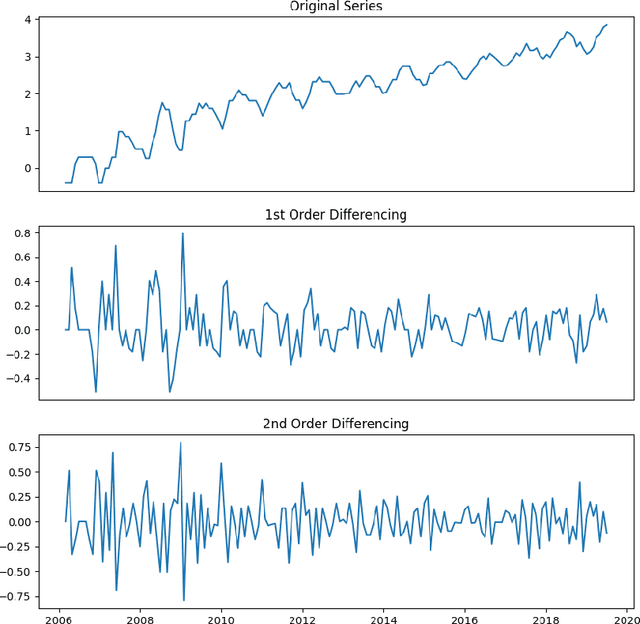



Abstract:We present our work on electric bicycles (e-bikes) and their implications for policymakers in the United States. E-bikes have gained significant popularity as a fast and eco-friendly transportation option. As we strive for a sustainable energy plan, understanding the growth and impact of e-bikes is crucial for policymakers. Our mathematical modeling offers insights into the value of e-bikes and their role in the future. Using an ARIMA model, a supervised machine-learning algorithm, we predicted the growth of e-bike sales in the U.S. Our model, trained on historical sales data from January 2006 to December 2022, projected sales of 1.3 million units in 2025 and 2.113 million units in 2028. To assess the factors contributing to e-bike usage, we employed a Random Forest regression model. The most significant factors influencing e-bike sales growth were disposable personal income and popularity. Furthermore, we examined the environmental and health impacts of e-bikes. Through Monte Carlo simulations, we estimated the reduction in carbon emissions due to e-bike use and the calories burned through e-biking. Our findings revealed that e-bike usage in the U.S. resulted in a reduction of 15,737.82 kilograms of CO2 emissions in 2022. Additionally, e-bike users burned approximately 716,630.727 kilocalories through their activities in the same year. Our research provides valuable insights for policymakers, emphasizing the potential of e-bikes as a sustainable transportation solution. By understanding the growth factors and quantifying the environmental and health benefits, policymakers can make informed decisions about integrating e-bikes into future energy and transportation strategies.
Principal Trade-off Analysis
Jun 09, 2022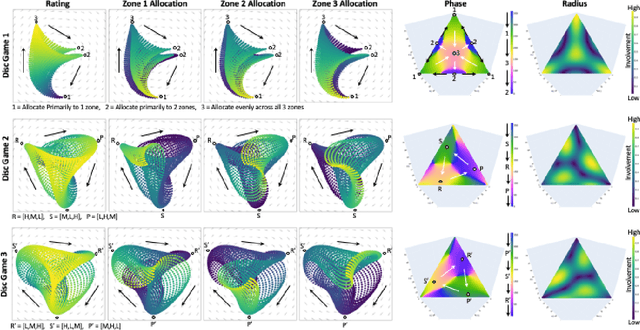
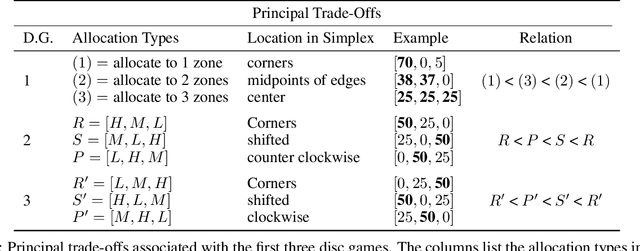
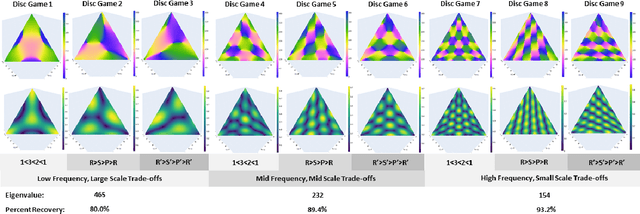
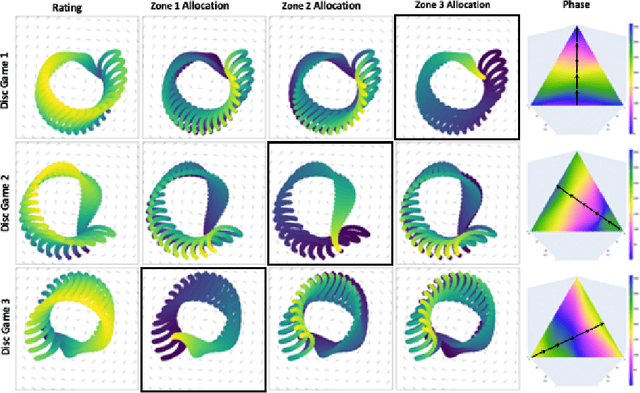
Abstract:This paper develops Principal Trade-off Analysis (PTA), a decomposition method, analogous to Principal Component Analysis (PCA), which permits the representation of any game as the weighted sum of disc games (continuous R-P-S games). Applying PTA to empirically generated tournament graphs produces a sequence of embeddings into orthogonal 2D feature planes representing independent strategic trade-offs. Each trade-off generates a mode of cyclic competition. Like PCA, PTA provides optimal low rank estimates of the tournament graphs that can be truncated for approximation. The complexity of cyclic competition can be quantified by computing the number of significant cyclic modes. We illustrate the PTA via application to a pair of games (Blotto, Pokemon). The resulting 2D disc game representations are shown to be well suited for visualization and are easily interpretable. In Blotto, PTA identifies game symmetries, and specifies strategic trade-offs associated with distinct win conditions. For Pokemon, PTA embeddings produce clusters in the embedding space that naturally correspond to Pokemon types, a design in the game that produces cyclic trade offs.
 Add to Chrome
Add to Chrome Add to Firefox
Add to Firefox Add to Edge
Add to Edge